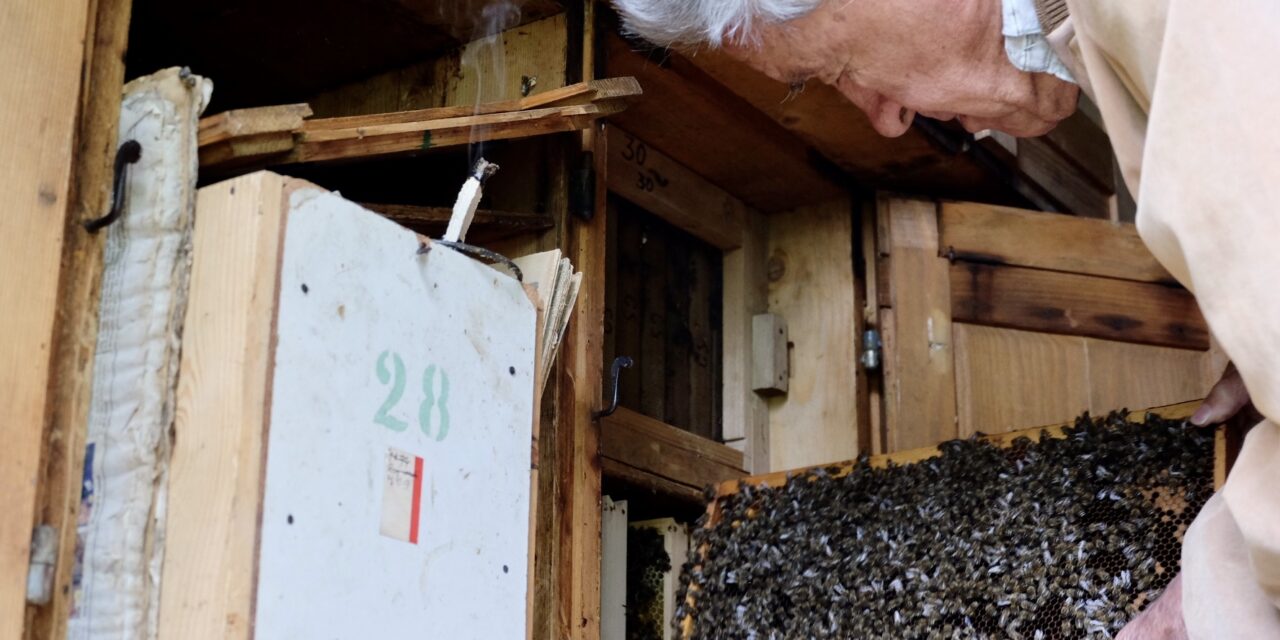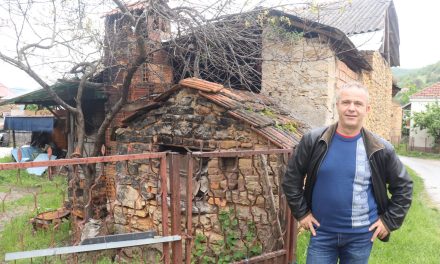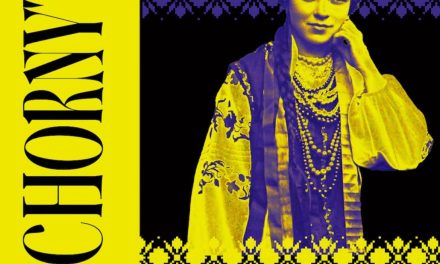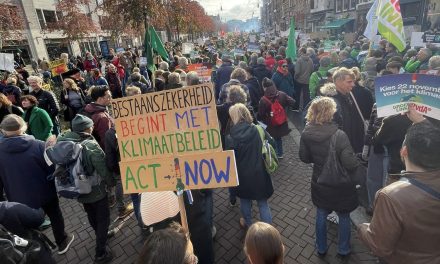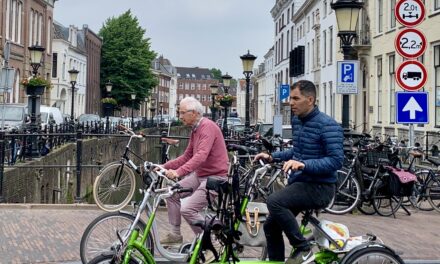Grey clouds and rain begins to cover the green hills of Radovljica. A medieval town only 35 minutes away from the capital of Slovenia, Ljubljana. Normally, local beekeeper Severin Golmajer would call it a day when the weather starts to turn, as bees get anxious in cold weather. But today, he makes an exception. Severin Golmajer finds the hidden key and proudly opens the door to his green and red painted beehives. He lightens a smoker, which deters bees while he enters the humming mass.
World Bee Day
A third of the world’s food production depends on bees, according to bee experts at the Food and Agriculture Organization (FAO). But sadly, bee populations have been declining globally due to pesticides, changes in weather patterns and habitat loss. While bee populations are declining worldwide, Slovenia has more beekeepers than any other country in the world. With only 2 million people living in Slovenia, one out of every 200 people is a beekeeper. That is four times as many as in in the European Union as a whole. In Slovenia, beekeeping is a way of life. Not even the coronavirus slowed down the country’s dedication to keeping bees. During the lockdown, beekeepers were considered essential workers and were permitted to travel freely to their beehives.
Peter Kozmus works in the Slovenian Beekeeping Association, he states that pollinators like butterflies, bats and bees are a part of the biodiversity on which we all depend for our survival:
“Bees are extremely important because of food production, bee-products and the environment. Bees are threatened in many countries and regions in the world. Therefore we (the association) try to inform people what we must do to improve the conditions for bees.”
For this reason, the Slovenian Beekeeping Association lobbied with the United Nations successfully for a World Bee Day starting in 2021. Every year on the 20th of May people all over the world now raise awareness of the essential role of bees and other pollinators.
One who fought for the initiative is Peter Kozmus. He recognized that people were not aware of bees importance to life. To raise the public awareness about the importance of bees in the preservation of the environment and the foundation for the survival of nature, he is first author behind the book ‘No bees, no life’. In addition, he is the leader of Slovenian Beekeeping Association’s breeding program for the Carniolan honey bee, which is native to Slovenia. The Association takes special care of the conservation of the Carniolan bee, the protection of its life habitat and the production of bee products. The Carniolan bee is one of the protected species in Slovenia and beekeepers are not allowed to bring in any other bee species.
Severin Golmajer and his granddaughter Neža Golmajer Zima keep Carniolan honey bees. They join me on a rainy day in Radovljica for an interview to talk about the beekeeping culture in Slovenia.
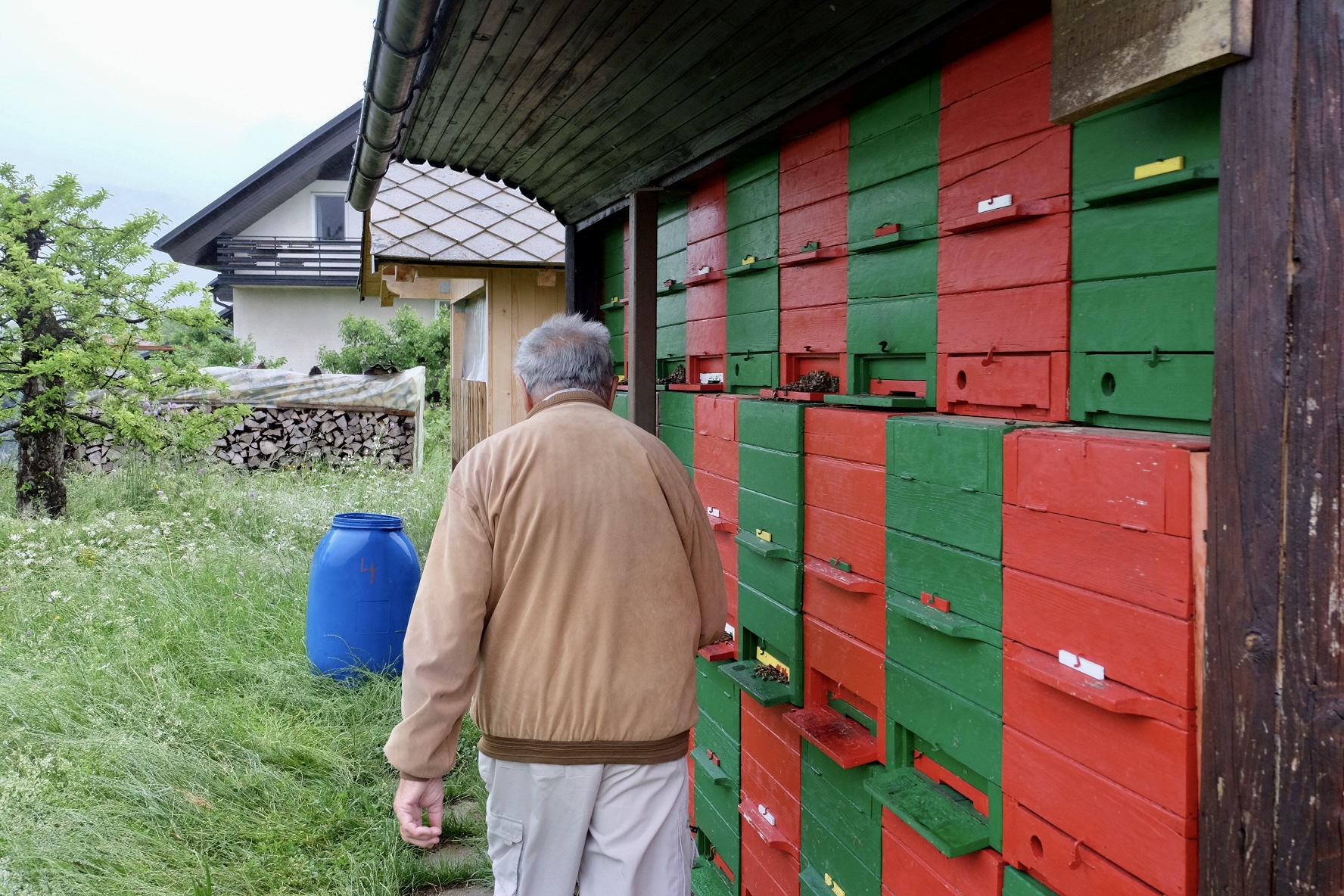
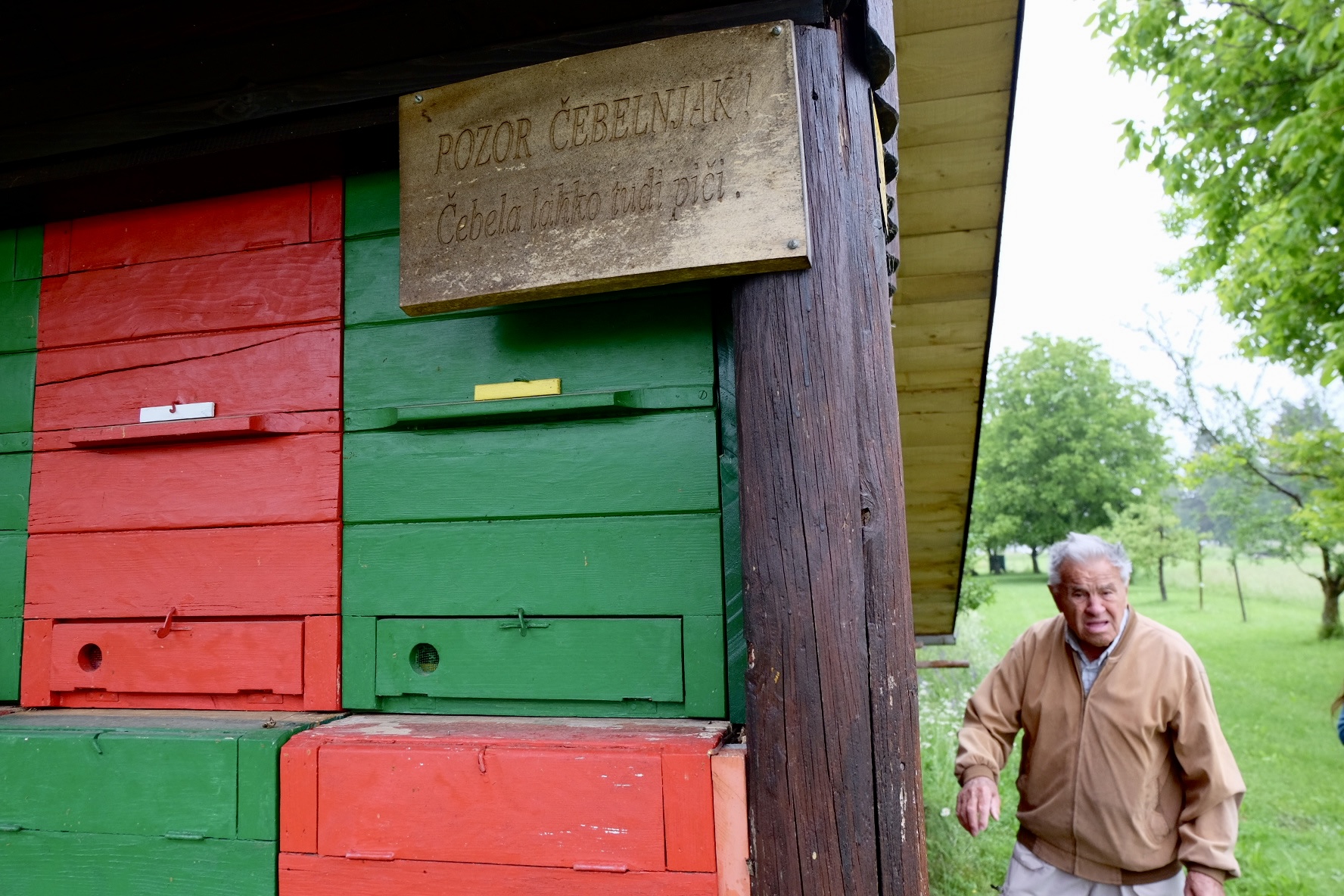
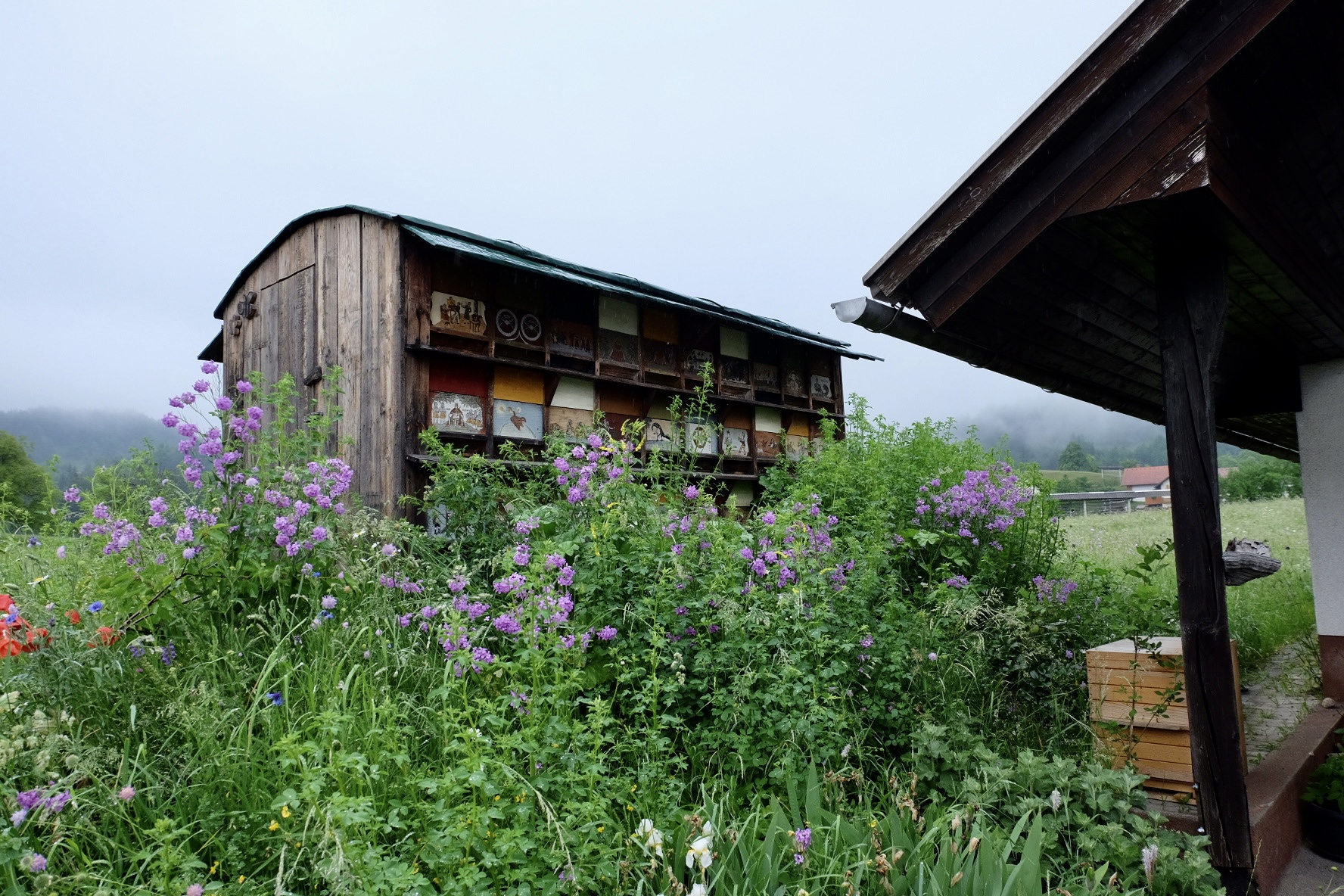
Beekeeper with heart and soul
Severin Golmajer is a beekeeper with decades of experience, a man in his early-90’s, who harvests honey the traditional way from his own hives. First he appears on a dangerous cliff edge wearing no protective mask or gloves. A cloud of bees swarming as he removes the honeycomb from a hive in his shelter. He is an incredible man, a natural optimist with a gentle steady hand – I trust him instinctively. And I am not the only one. His granddaughter Neža Golmajer Zima listens to every word. She watches every move and carefully shadows his movements. The hives were supposed to be taken over by her older brother, but he suffers from allergic reactions to bee stings. For this reason, Neža Golmajer Zima accompanies Severin and the fuzzy bees every week.
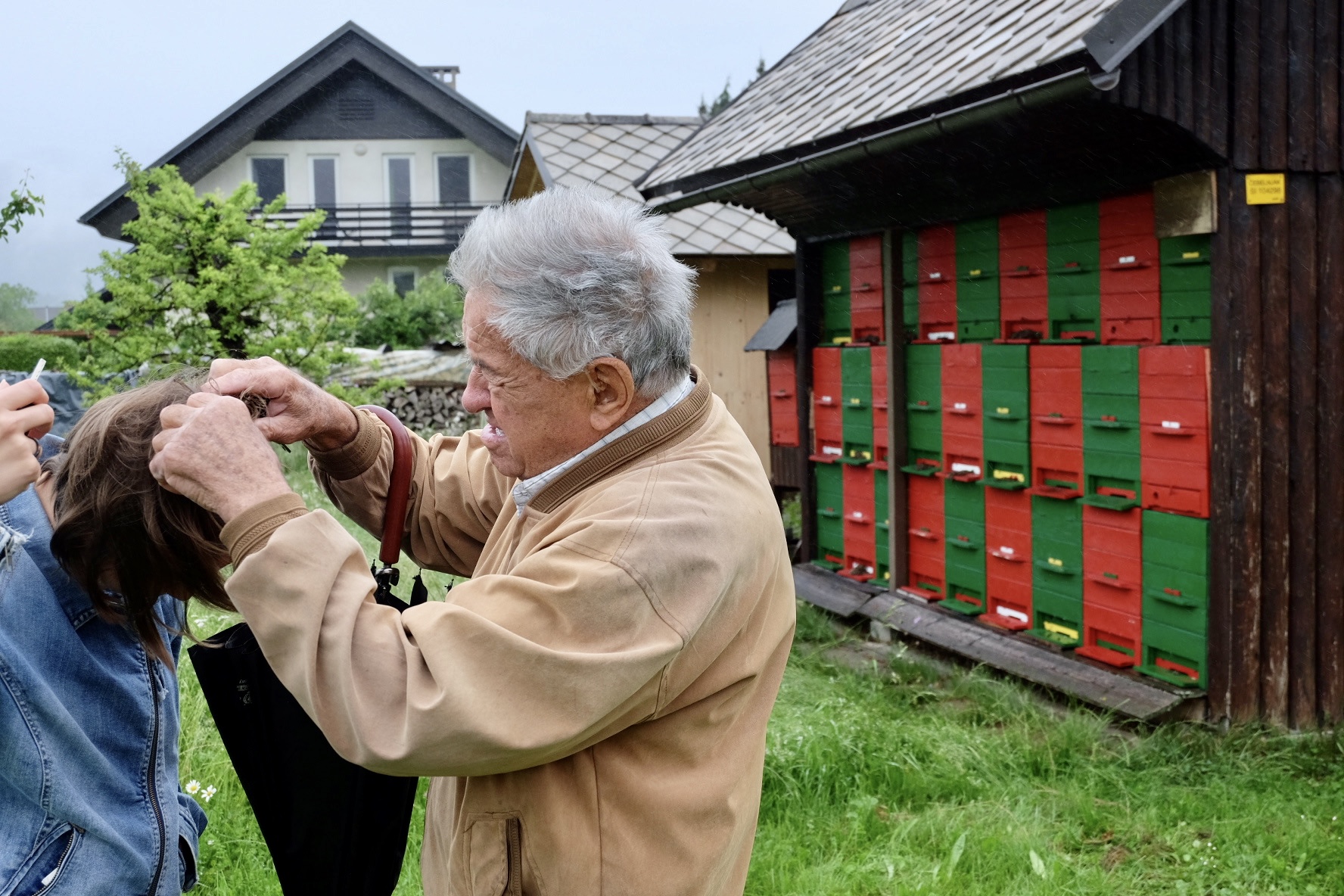
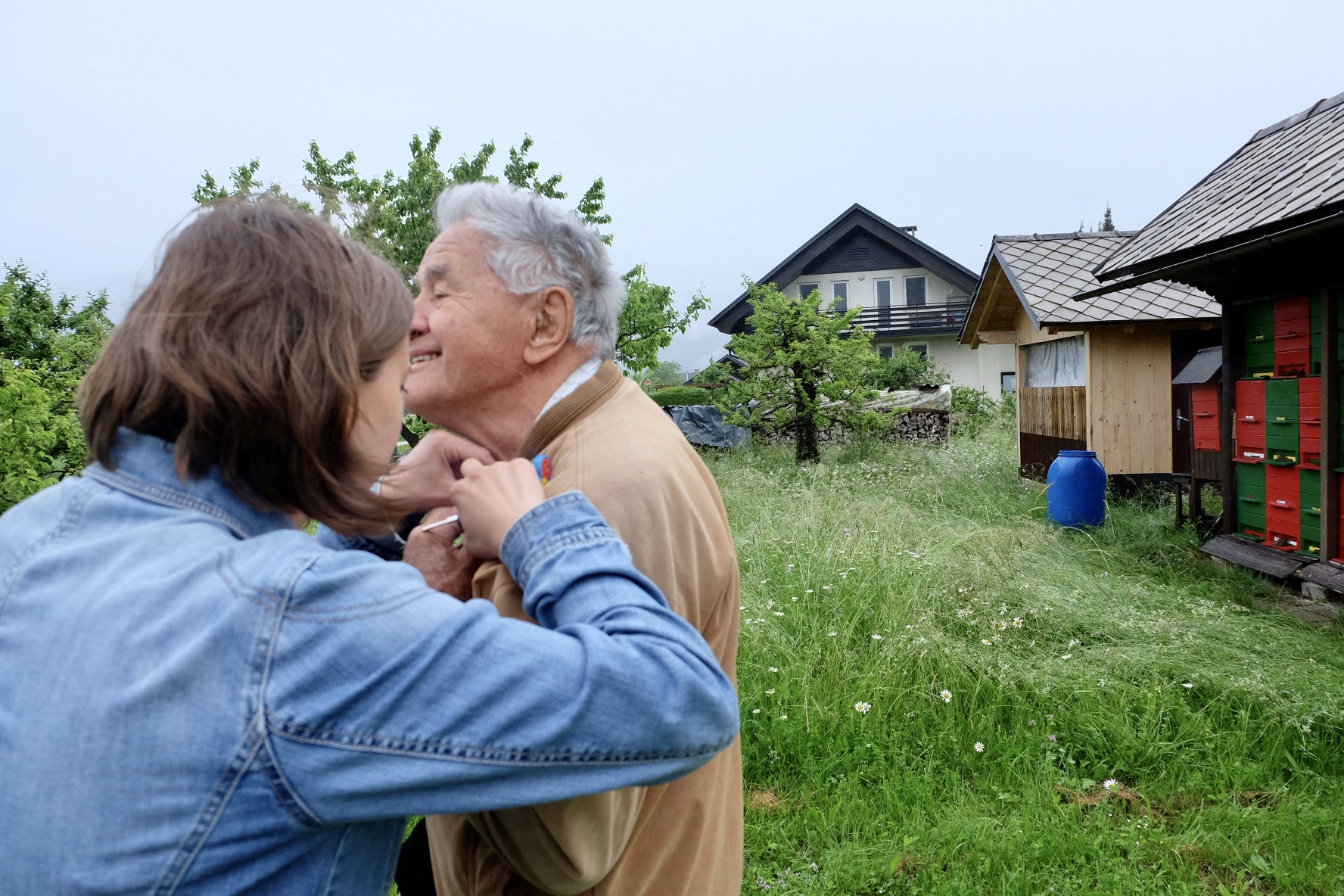
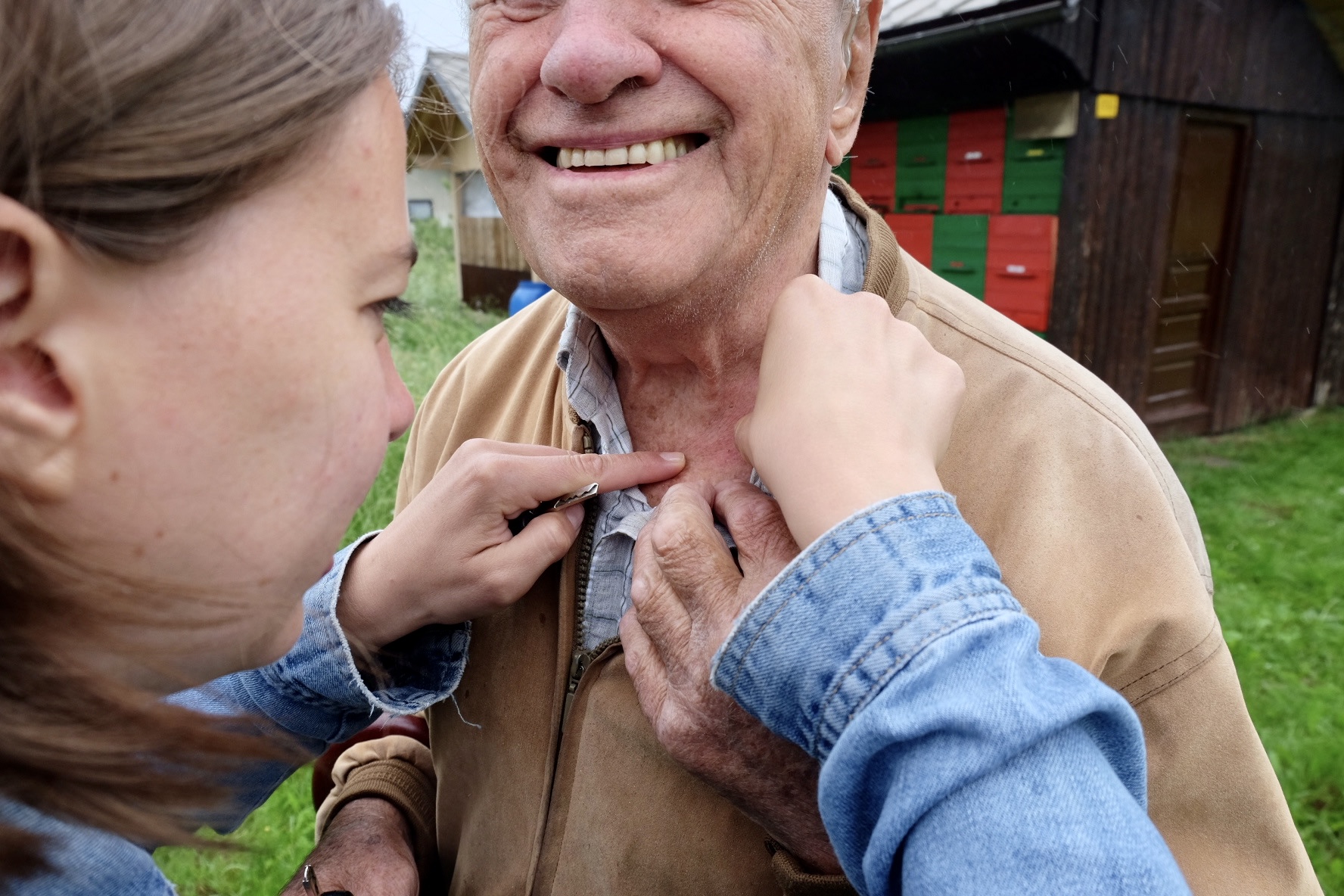
Severin Golmajer was drawn into beekeeping in the same manner. His family were all farmers and as a 15 year old boy he helped his uncle by taking care of the bees. In 1944 his uncle had to join the Second World War and Severin Golmajer was left alone with the beehives.
“The year of 1944 – 1945 was a bad year for bees. Food had to be purchased with ration cards and there were no sugar. During the winter all bees in the area died.”
Severin Golmajer’s livelihood got stripped away from him. Granted that, he packed a bag pack and went to find bees. After walking 10 kilometers he finally found beehives in a nearby city:
“I searched through every town I passed to find them. And suddenly in the hills I found a beekeeper who still had surviving bees.”
He received some kranjiči (bee hives) from the man and took the hives on his shoulder as he walked to the nearest train-station.
“On the train a conductor told me that I weren’t allowed to have bees in the train and that I had to get off at the next station. But it was fine because the next station was where I had to get out,” laughs Severin Golmajer.
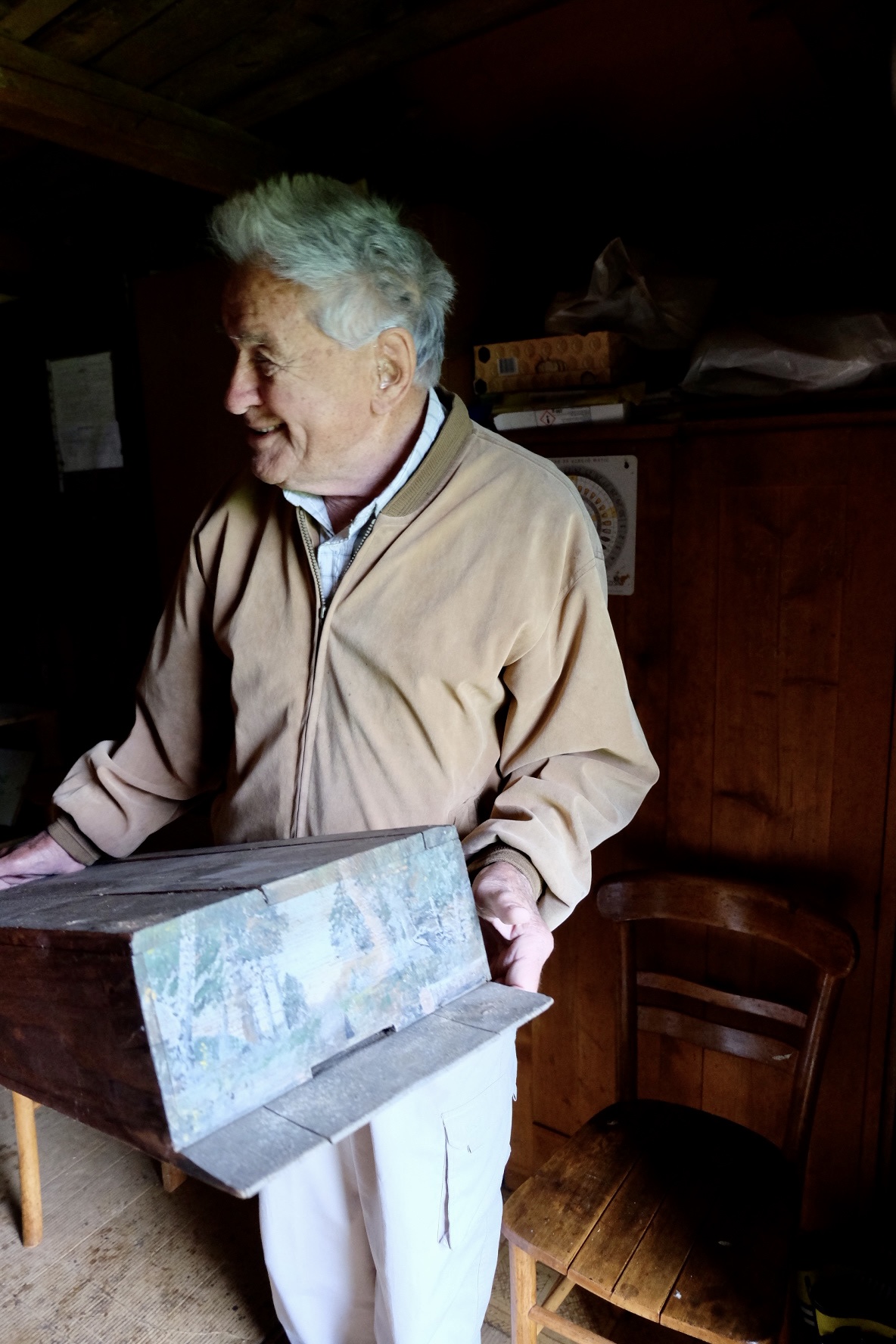
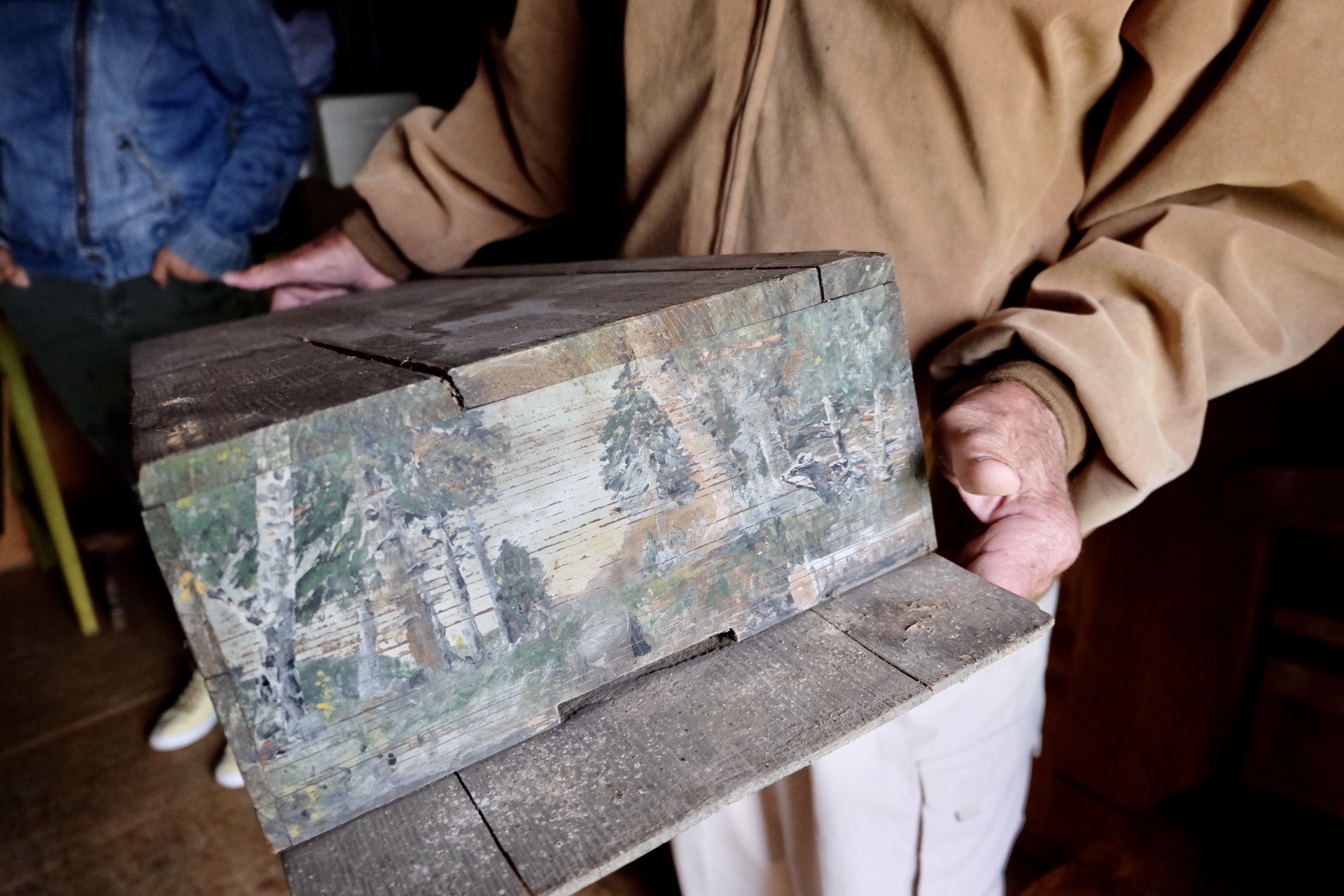
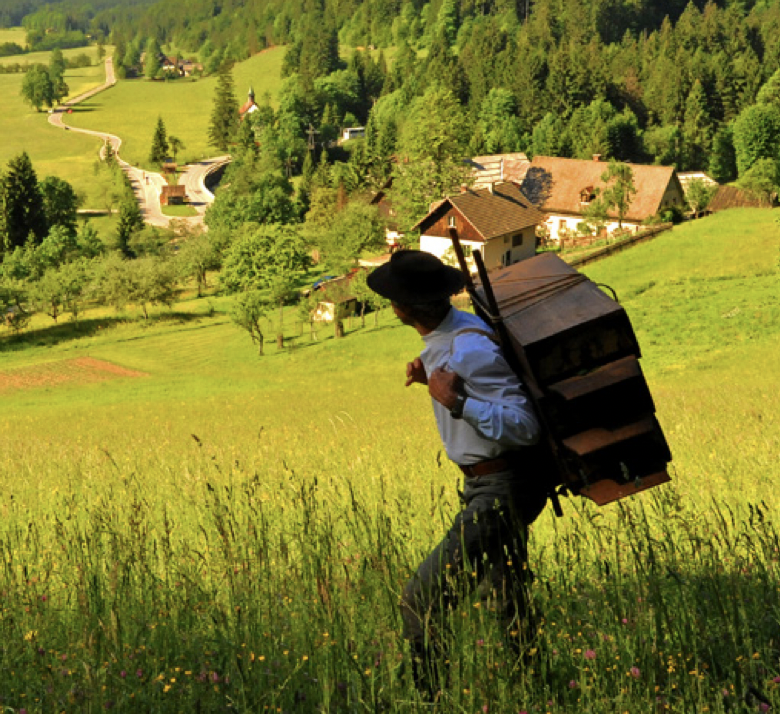
Severin Golmajer used to have 100 hives, but today he keeps 40 colonies painted in green and red that brightens up the surrounding the landscape. He does not sell the honey but enjoys to make friends and family happy with a small jar once in a while. Uniquely, he has a big collection of jars with honey from all over the world.
“75 years ago when I started beekeeping it was a lot easier than now. There were no diseases, a lot of food and a lot of flowers for the bees. Now many farmers mow the lawn so there is no food for the bees. There is less biodiversity, you know.”
Like all bees, honeybees thrive in a biodiverse landscape. For this reason, Severin Golmajer lets wild flowers grow around the beehives.
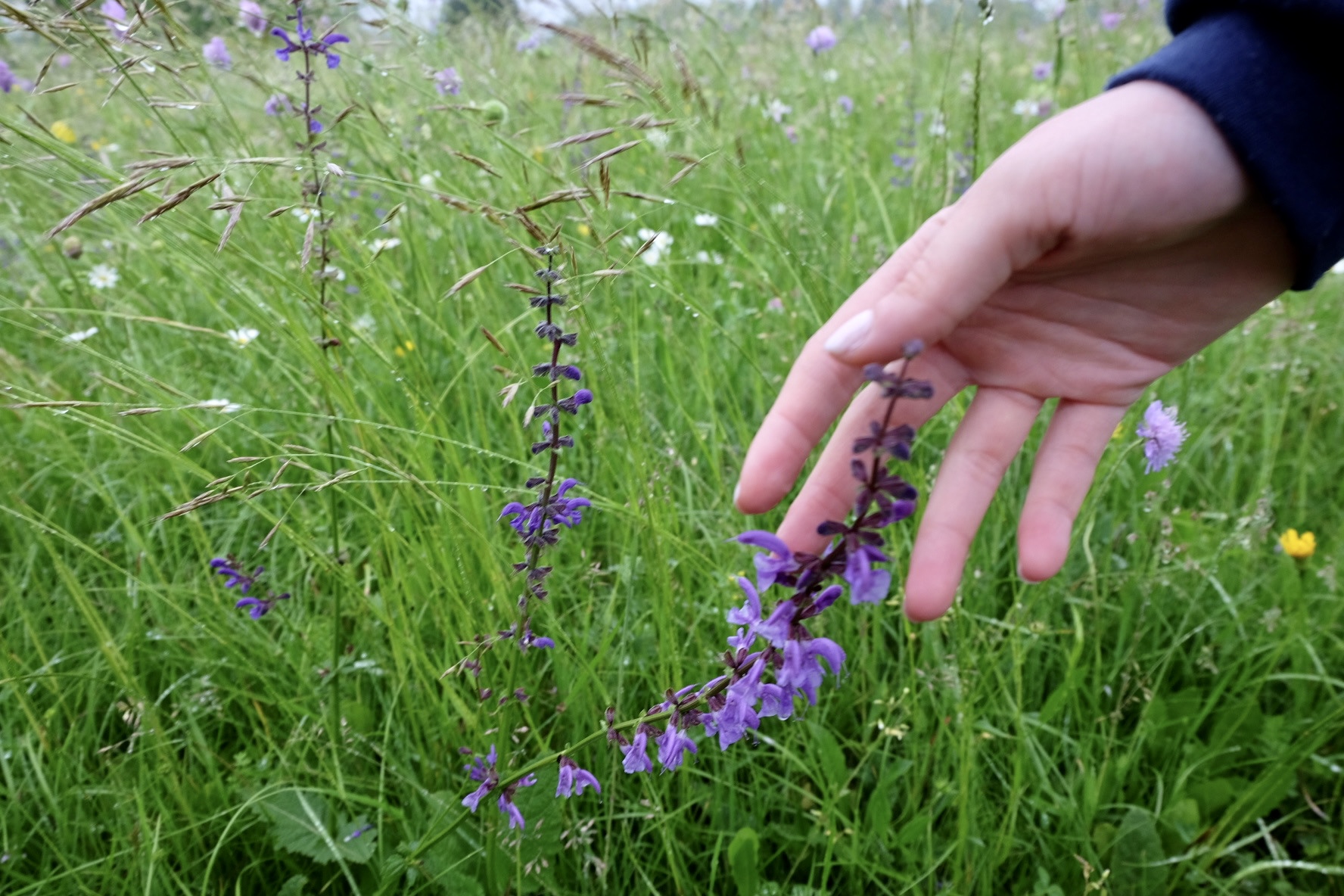
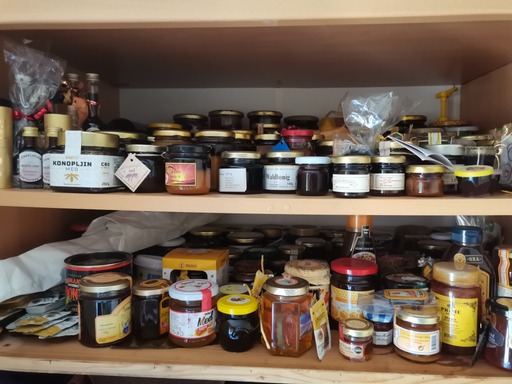
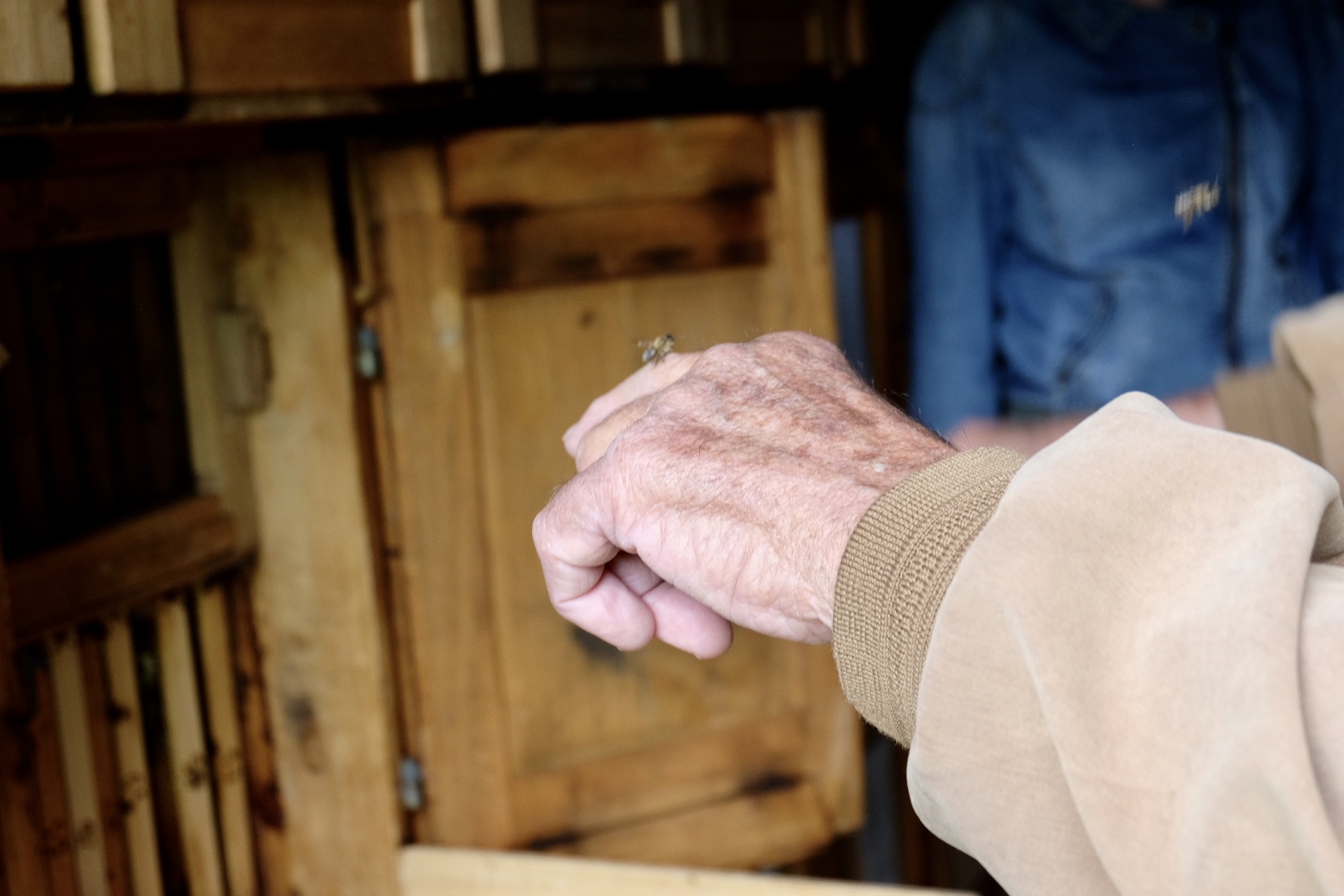
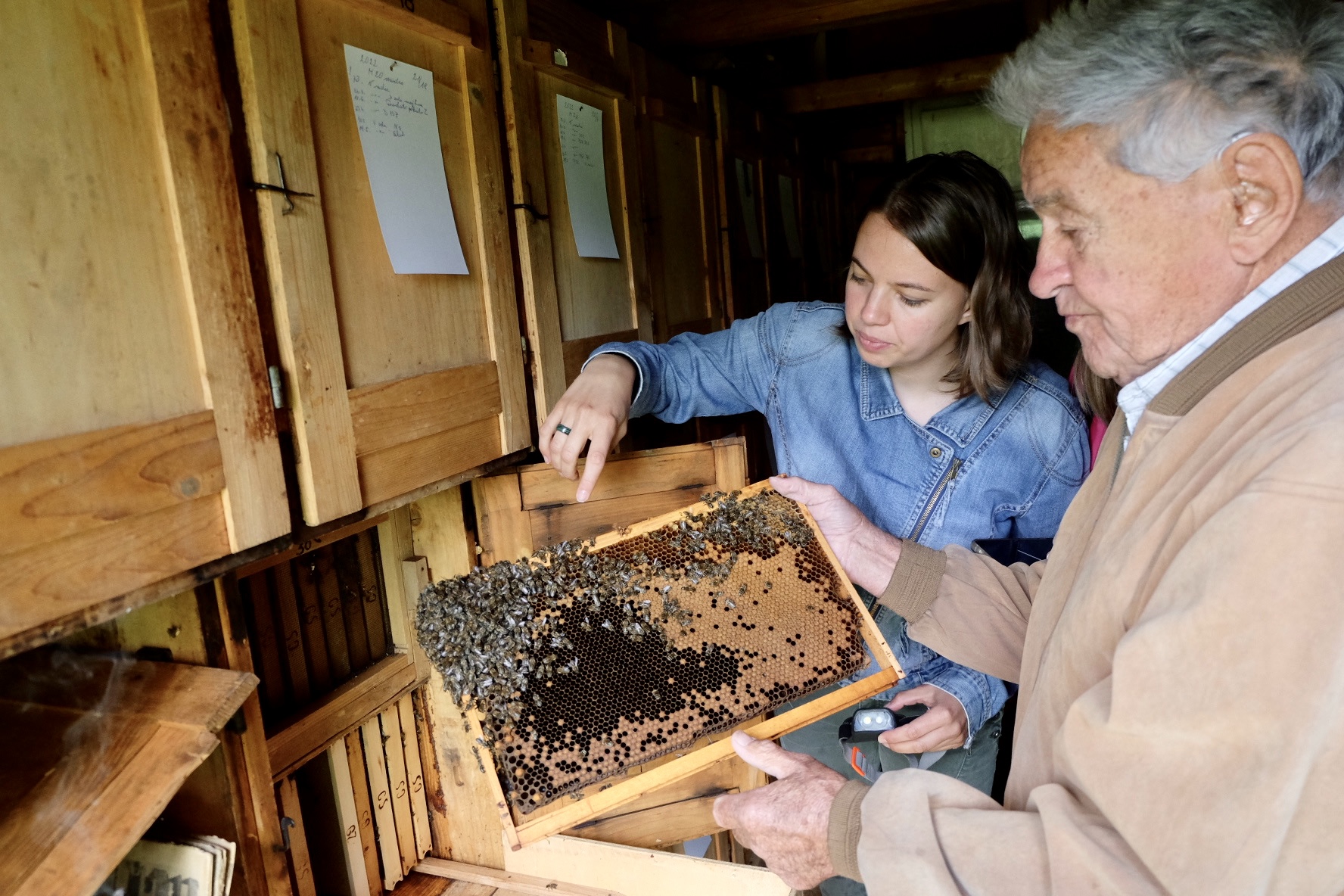
A special connection with the bees
In Slovenia many people keep bees. The average beekeeper has 15 hives according to Severin Golmajer and many have the colonies in the garden to watch them fly and pollinate their flowers. However, beekeeping is expensive, difficult and it is a lot of work to start keeping bees.
Severin Goldmajer enumerates:
“You have to have everything, because of the diseases. You can’t lend someone your things. Everyone has their own.”
This is why his granddaughter Neža Golmajer Zima closely watches his every step. As a lesson he has taught her that you have to be very calm and concentrated when being around the bees. Sometimes it happens that Severin Goldmajer just closes the hives because he is not in the mood. He points out how you need to have the right energy to work around bees.
“Bees are wild animals. You have to adjust to them and the weather.”
Neža Golmajer Zima smiles and says:
“In this modern era we would call it mindfulness.”
When I ask Severin Goldmajer why he keep bees he cannot find the words.
“It is just something that makes me feel good. I am part of the whole community. Part of the association and they are all from my generation, I have friends there. I go every week to the meetings. I just feel it. This is the thing I want to do. It is hard to explain – it is my passion.”
He adds:
“Its like when you meet someone. It is like that with the bees. I connect with the bees. It is like a couple. If you fall in love you fall in love.”
Neža Golmajer Zima explains how much he worked on weekends and were a bit absent from his family. She winks at me and says:
“His wife is really affected by the bees. She is always second.”
We all laugh.
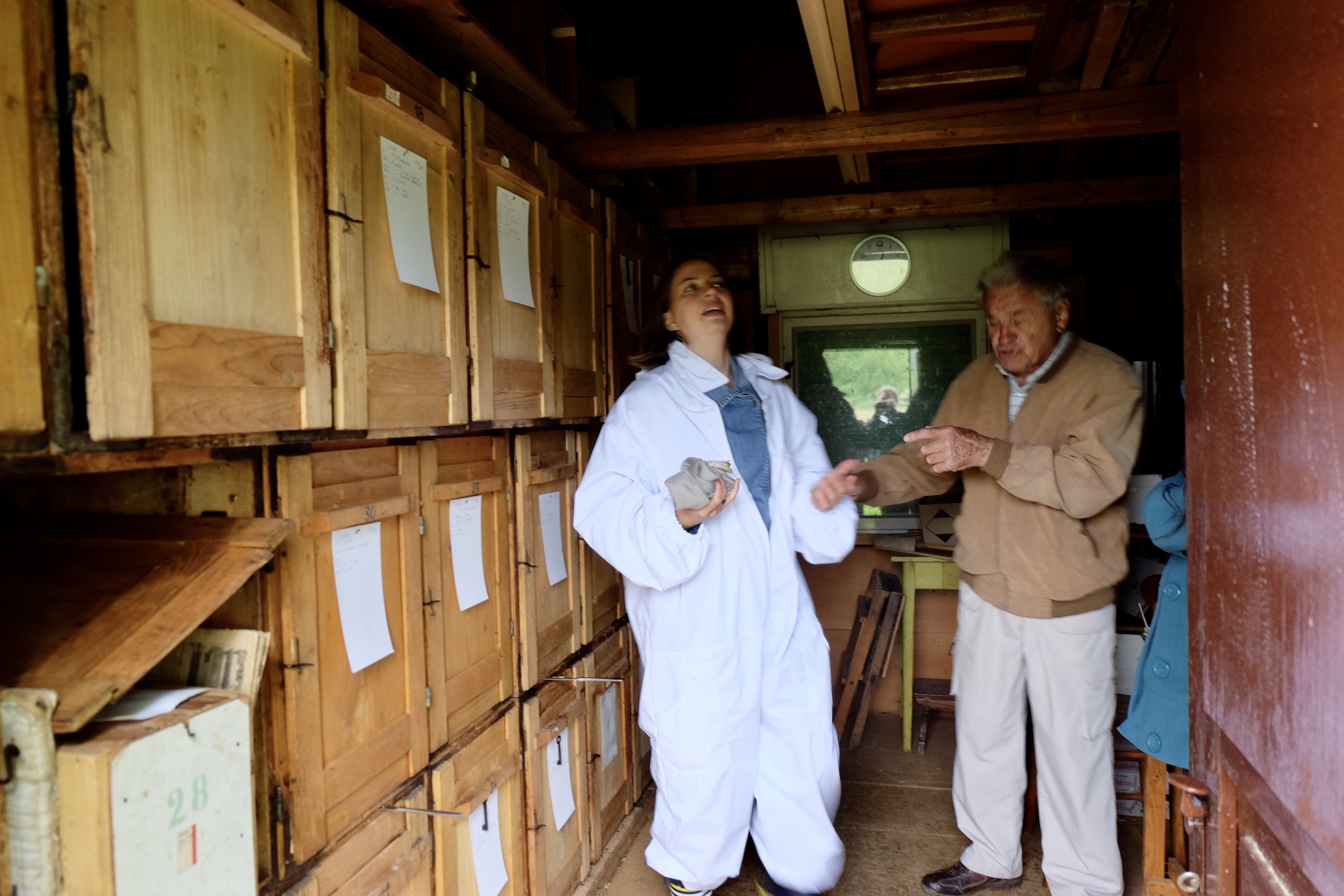
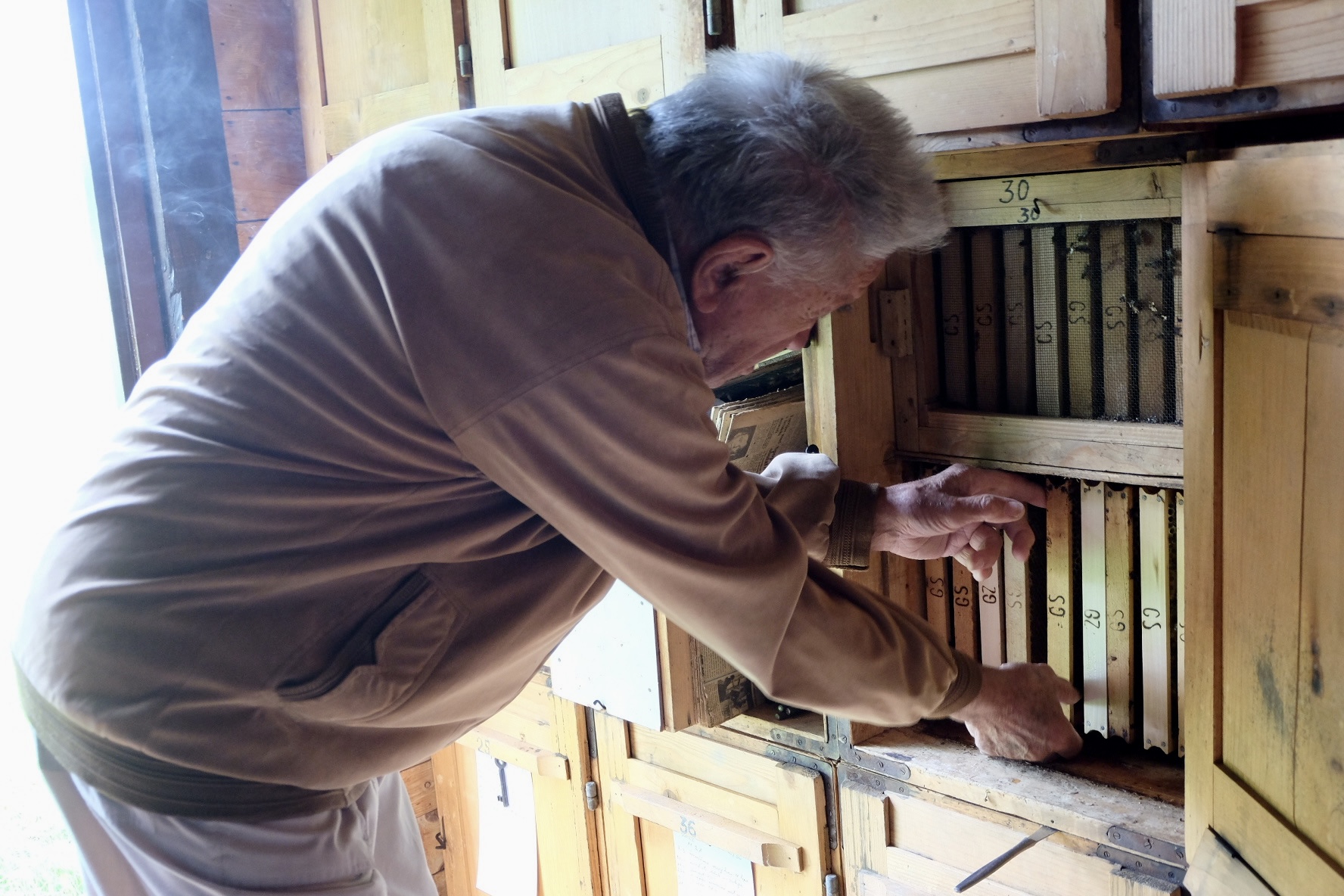
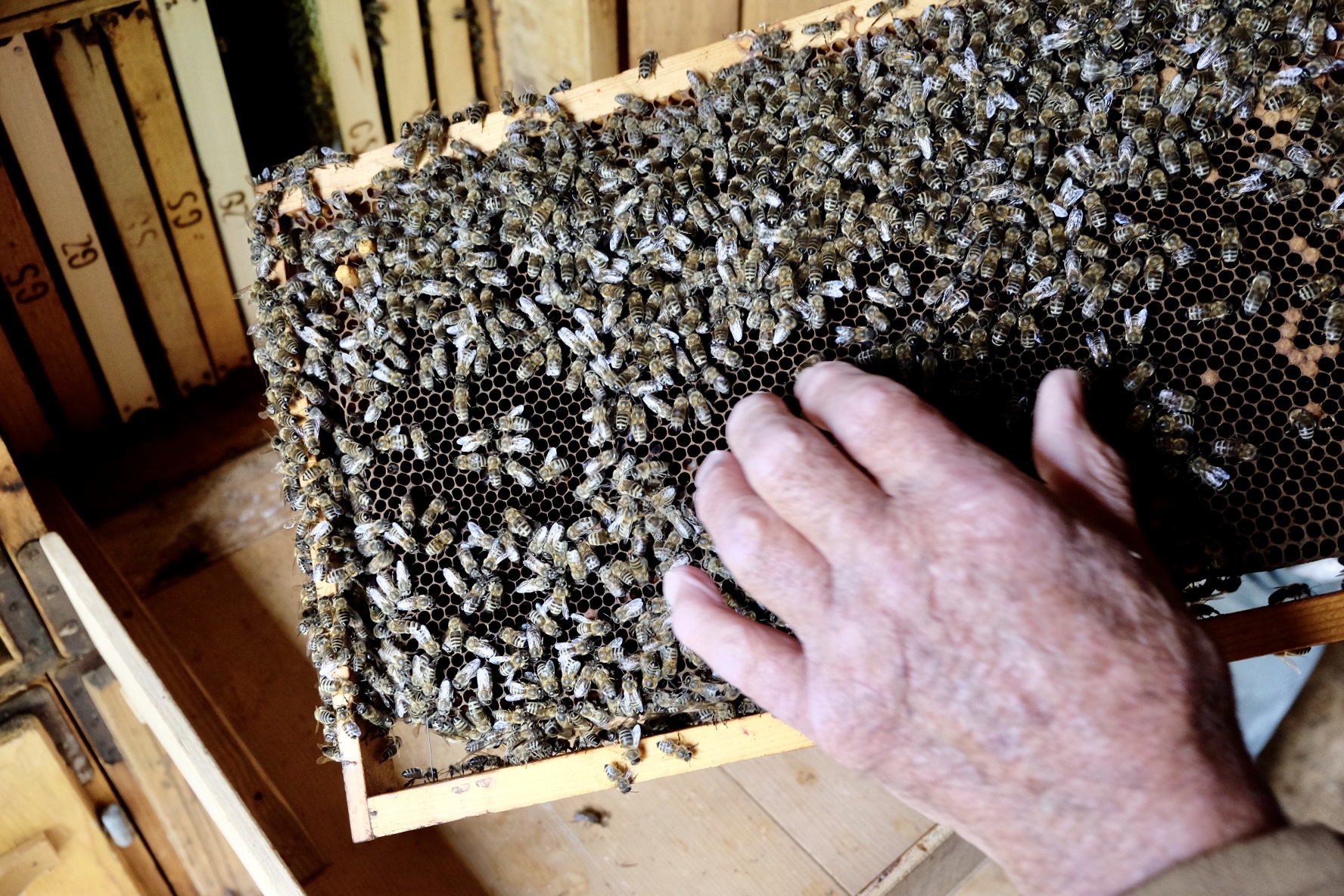
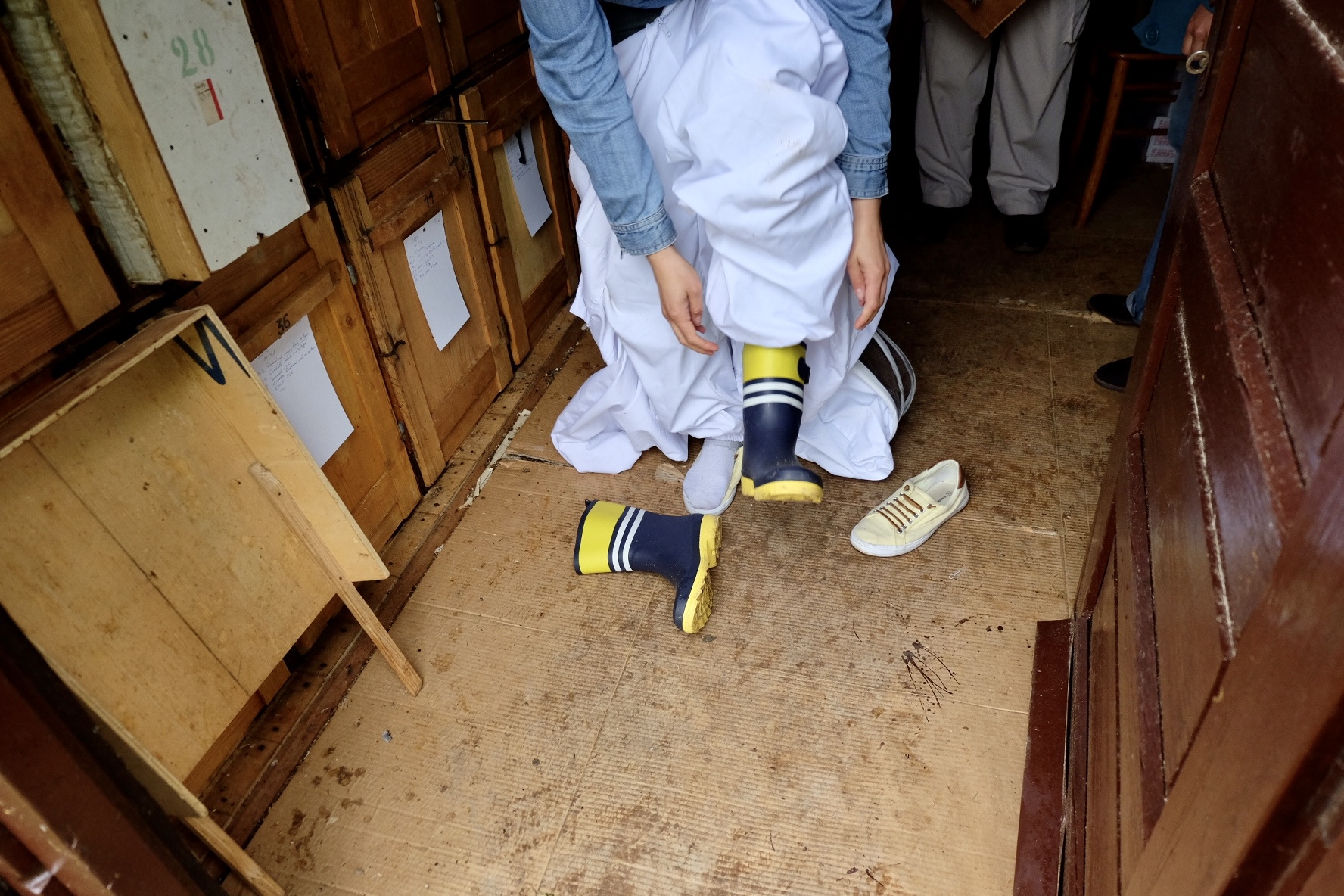
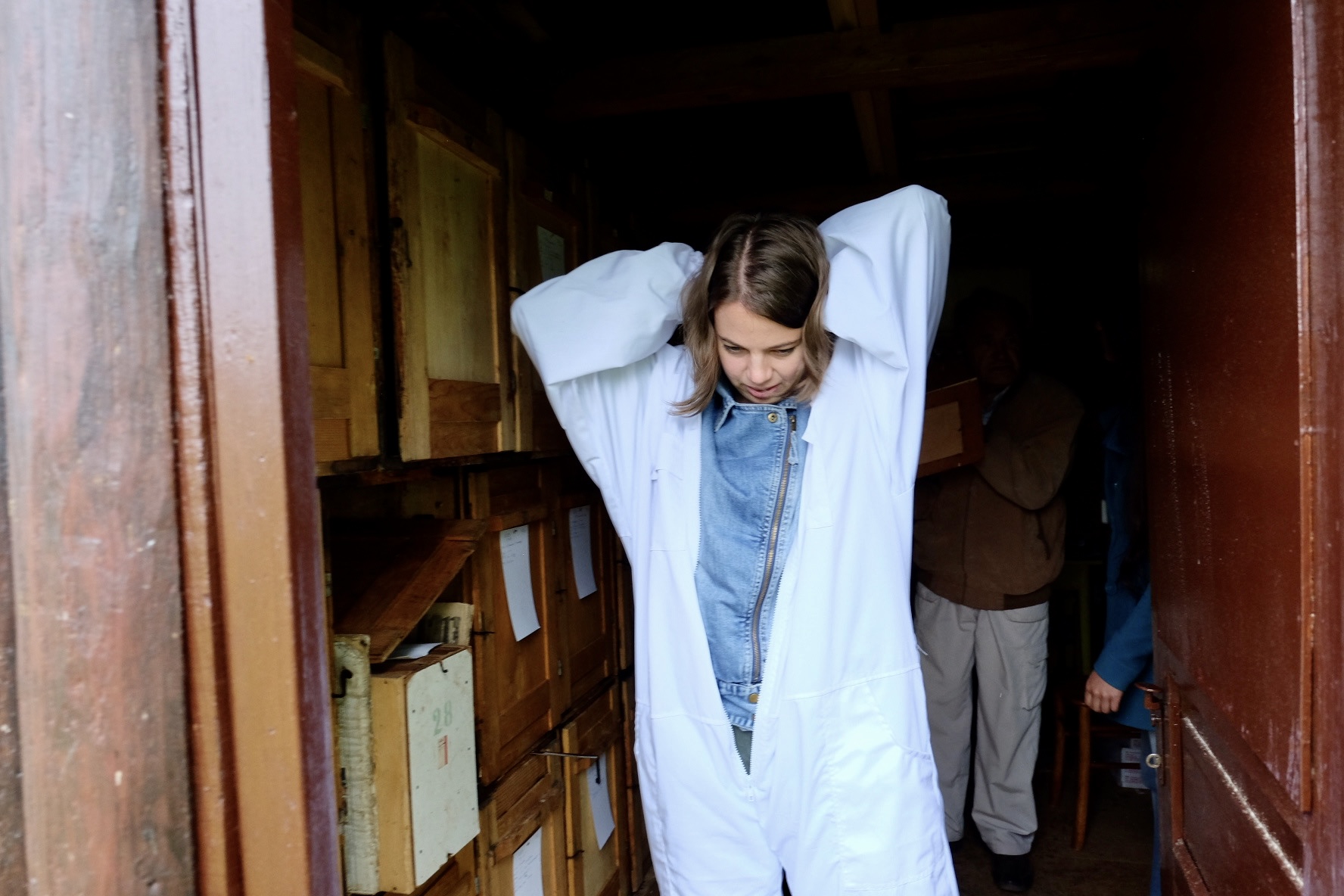
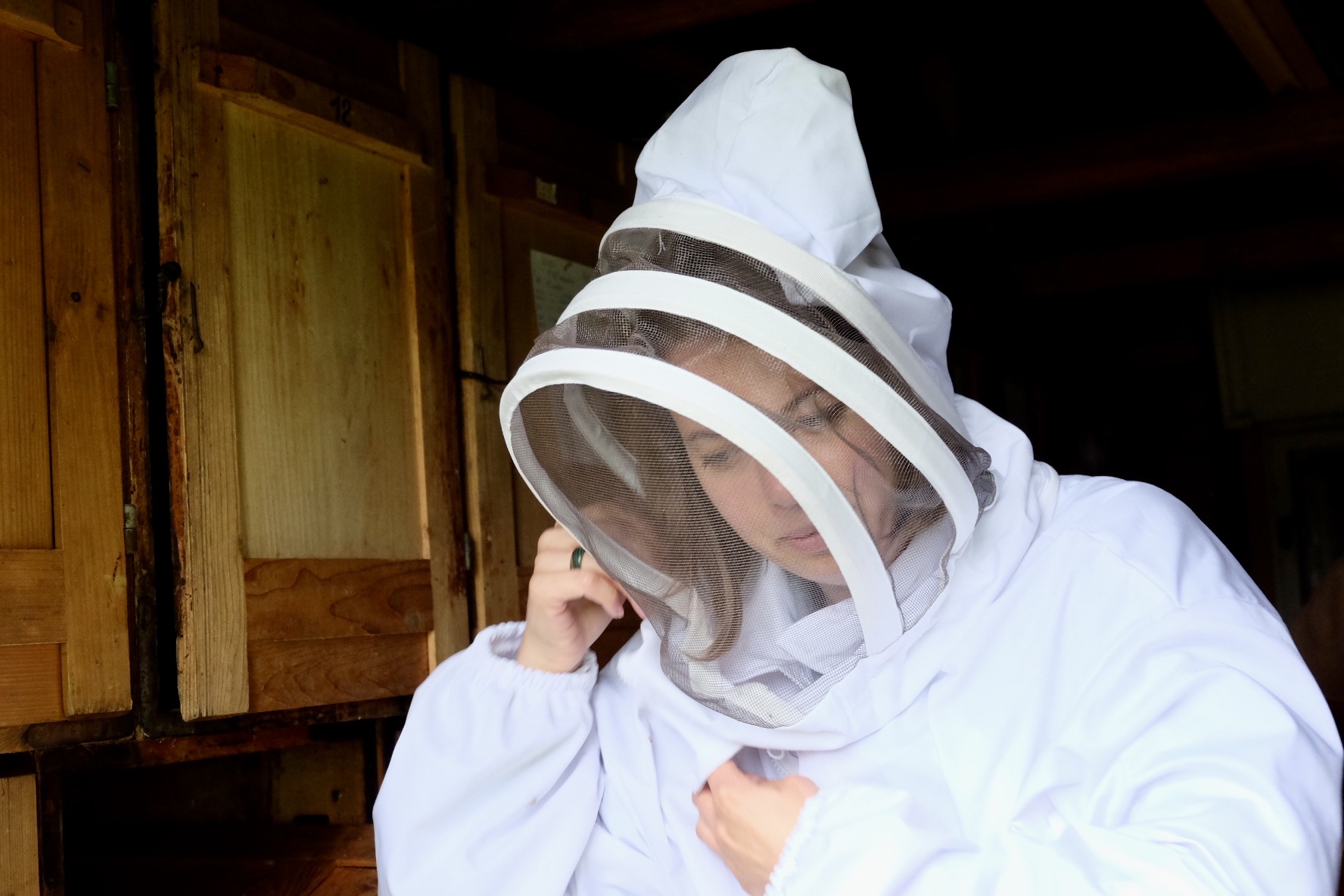
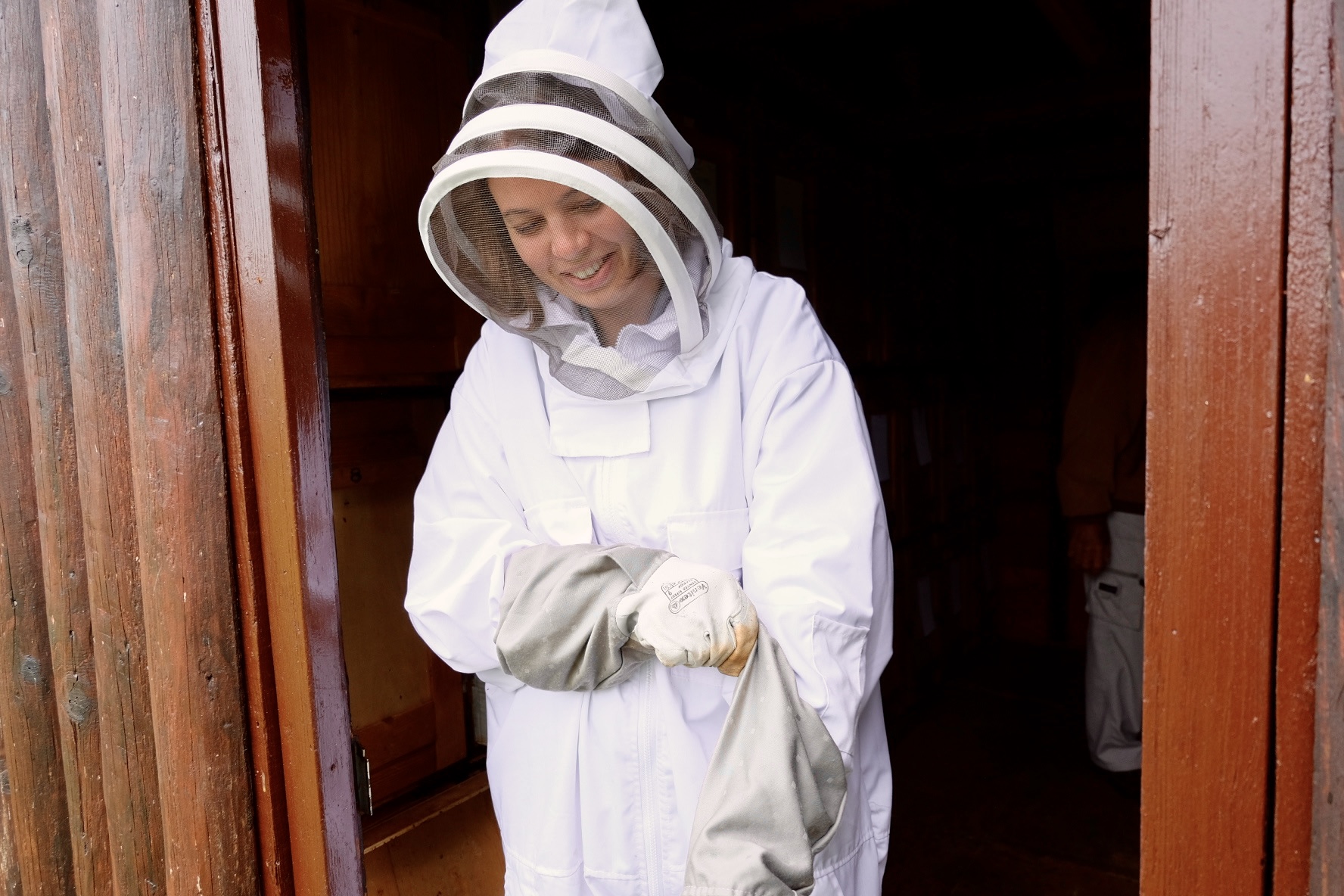
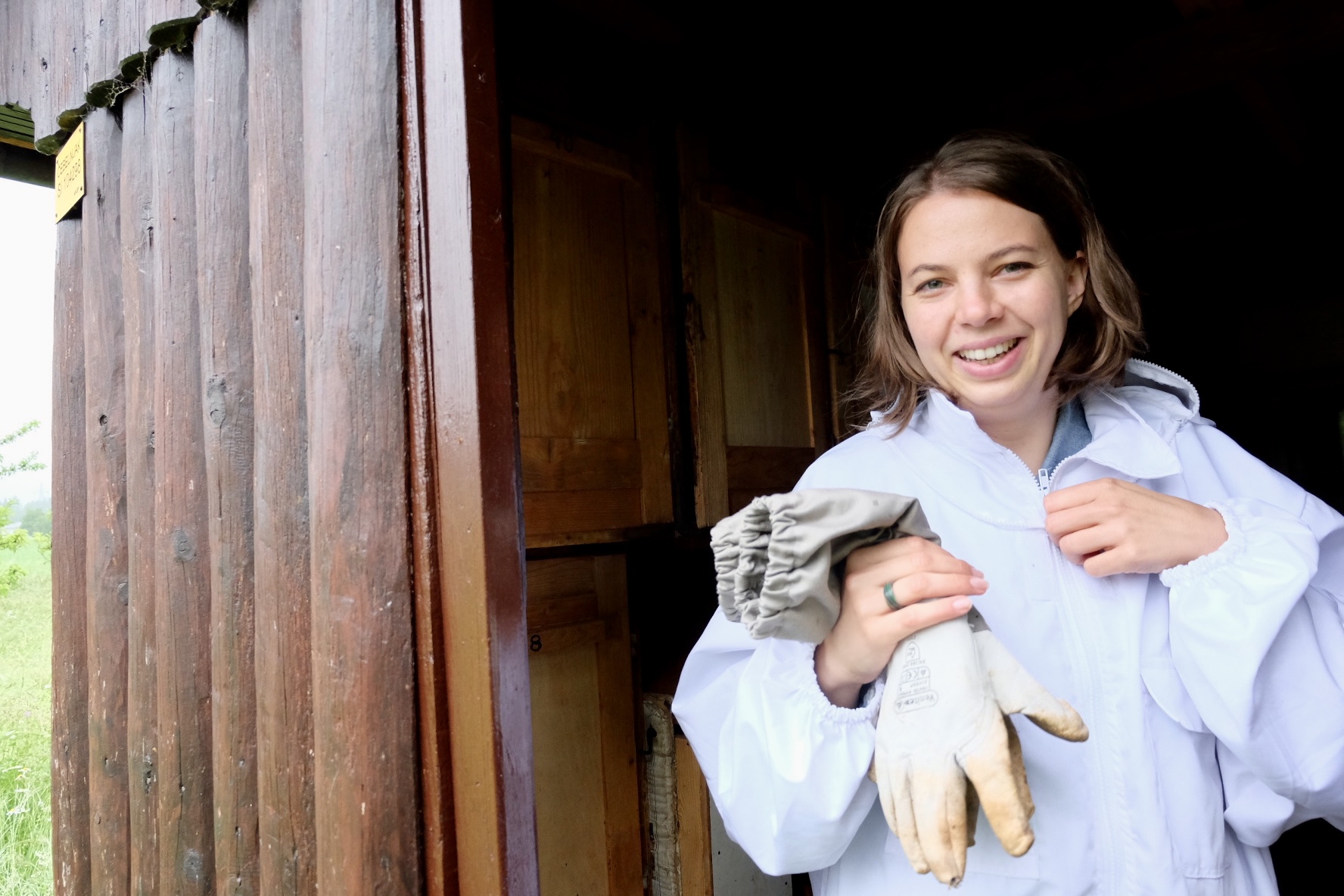
Traditions and generations
Not many beekeepers in Slovenia are professionals and the majority pursue it as a hobby with a small number of beehives. For them, beekeeping is a way to spend their freetime and produce honey for themselves, relatives and neighbours. Some sell it locally in small wooden houses in front of their houses. Peter Kozmus explains that sometimes the traditions about beekeeping stays in the family. And he is glad about lowering the age of beekeepers in Slovenia.
“Usually beekeepers are quite old. Today the average beekeeper in Slovenia is less than 60 years old. About 15 years ago it was 65 years. This is big results. Beekeepers usually want to teach somebody in his family to take over the bees but it is very hard.”
However, he believes that passing the tradition on within families are the best way to keep beekeeping.
He explains how a beekeeper must have ‘a special feeling and special love’ and that it is not an easy business – ‘You need a lot of knowledge and a good environment’.
“As I mentioned you need a lot of knowledge to start with beekeeping and if you start without knowing anything, it is very hard to begin. You need a lot of years of experience to become a good beekeeper.”
Even though taking care of beehives might have its challenges and keeping bees is harder than most people imagine, the tradition of keeping bees is still very much alive in Slovenia. Despite Slovenia being a small country, the interest and public awareness of keeping bees is huge. The enthusiasm of the new generation gives hope for bees. Especially, in the most bee-loving place in Europe.
